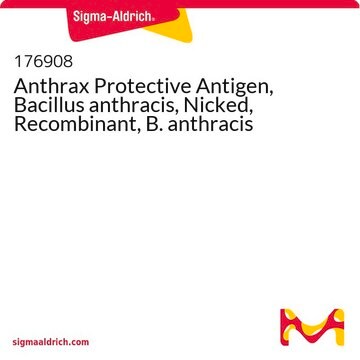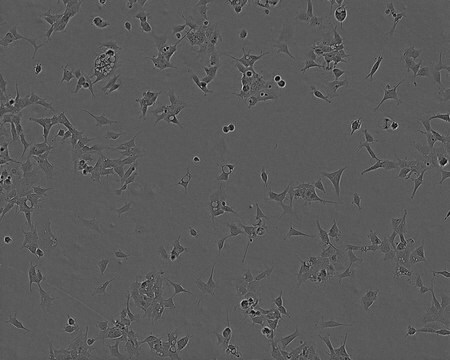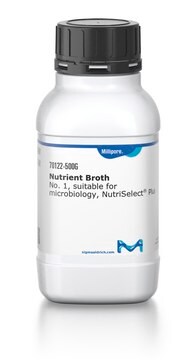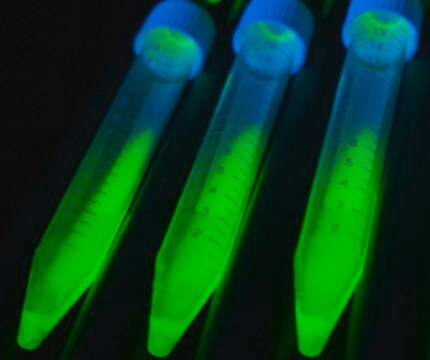176905
Anthrax Protective Antigen
from Recombinant, >90% (SDS-PAGE), lyophilized, anthrax protective antigen, Calbiochem®
Synonyme(s) :
Anthrax PA
About This Item
Produits recommandés
product name
Anthrax Protective Antigen, Bacillus anthracis, Recombinant, B. anthracis, Anthrax Protective Antigen, Bacillus anthracis, Recombinant, is the protective antigen that mediates the entry of anthrax lethal factor and edema factor into the target cell.
Niveau de qualité
Forme
lyophilized
Fabricant/nom de marque
Calbiochem®
Conditions de stockage
OK to freeze
Conditions d'expédition
ambient
Température de stockage
2-8°C
Description générale
Actions biochimiques/physiologiques
Type I membrane protein with a von Willebrand factor A domain called anthrax toxin receptor
Conditionnement
Avertissement
Forme physique
Reconstitution
Remarque sur l'analyse
Autres remarques
Nassi, S., et al. 2002. Biochemistry41, 1445.
Ahuja, N., et al. 2001. Biochem. Biophys. Res. Commun.286, 6.
Bradley, K.A., et al. 2001. Nature414, 225.
Brossier, F., and Mock, M. 2001. Toxicon39, 1747.
Informations légales
Code de la classe de stockage
11 - Combustible Solids
Classe de danger pour l'eau (WGK)
WGK 1
Point d'éclair (°F)
Not applicable
Point d'éclair (°C)
Not applicable
Certificats d'analyse (COA)
Recherchez un Certificats d'analyse (COA) en saisissant le numéro de lot du produit. Les numéros de lot figurent sur l'étiquette du produit après les mots "Lot" ou "Batch".
Déjà en possession de ce produit ?
Retrouvez la documentation relative aux produits que vous avez récemment achetés dans la Bibliothèque de documents.
Notre équipe de scientifiques dispose d'une expérience dans tous les secteurs de la recherche, notamment en sciences de la vie, science des matériaux, synthèse chimique, chromatographie, analyse et dans de nombreux autres domaines..
Contacter notre Service technique








